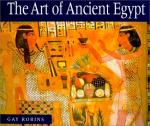|
This section contains 603 words (approx. 3 pages at 300 words per page) |

|
Restricted Freedom. Many words were used in ancient Egyptian for groups of people whose freedom was restricted. None of these words corresponds directly to either the Greek and Roman or the American legal concepts of slavery. More accurate translations of Egyptian would include "dependent" (meryet); "personnel" (djet); "forced laborer "(heseb); "worker" (bak); "servant" (hem); "royal servant" (hem-nesu); "prisoner of war" (seker-ankh); and "Asiatic" (a-amu). In the Old Kingdom (circa 2675-2130 B.C.E.) and Middle Kingdom (circa 1980-1630 B.C.E.), all people who lived within these classifications were restricted somewhat in their movements. Yet, there is no general term meaning "slave." Furthermore, there was no real consciousness during the Old Kingdom or Middle Kingdom of a class of people classified as slaves. The Satire on the Trades, the catalogue of occupations composed in the Middle Kingdom, does not...
|
This section contains 603 words (approx. 3 pages at 300 words per page) |

|




